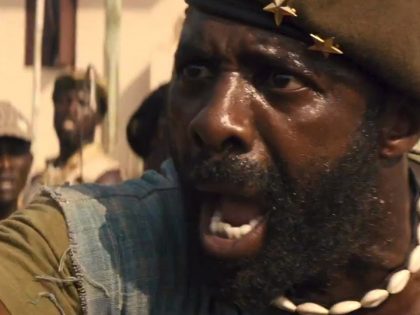The Rediscovery of William Onyeabor
The continued relevance or irrelevance of a musical figure to an African audience doesn't factor into that figure's "rediscovery" outside the continent.

William Onyeabor. Image via Luaka Bop Records.
Recently the curatorial platform Nowness posted a short video directed by musician and filmmaker Brian Bainbridge and Camille Wasserman that features the quirky yet graceful performance of the New York Roller Dancers as they skate to the music of recently “re-discovered” musician William Onyeabor. The video represents one of the more creative and compelling appropriations of Onyeabor’s singular musical style to date. In fact, since late last year when Luaka Bop, a New York record label owned by David Byrne, released the reissue album ‘Who Is William Onyeabor’, it has seemed that the story of Oyneabor was, for most of the media, the story of the search for a “mythic” outlier on the landscape of Nigerian popular music.
Reviewers, bloggers and journalists have pointed to the parallels between reissue specialist Eric Welles’s search for Onyeabor and Oscar-winning documentary ‘Searching for Sugar Man‘ which narrates the quest by South African fans to find the 1970s Detroit musician Rodriguez. (That film, btw, left out many convenient facts.) Out of the buzz emerges an inventory of the more intriguing turns in Onyeabor’s life: he purportedly studied film in the Soviet Union, traveled to Sweden to procure his sound recording equipment, singlehandedly recorded and pressed eight albums before he dramatically renounced pop music and dedicated himself to evangelical charismatic Christianity. Onyeabor chose to live out his days as a successful businessman in Enugu, what most commentators seem to view as a life of obscurity.
As The Guardian article on the matter makes evident, for better or worse, this sort of recuperation, rediscovery, reissue phenomenon is a cultural practice in its own right. But as with postmodernist cultural recycling on a whole, the musician, style or commodity returns largely shorn of its historical significance.
In focusing on the rediscovery of an eccentric pop music personality, the original Nigerian audience and the terrain of popular music at that time fall into the background, or disappear altogether. In the case of Onyeabor, the apprehensiveness with which commentators have acknowledged the musicians embrace of evangelical Christianity stands out. And perhaps they should be pardoned, since how would an arts columnist explain to a non-African audience Onyeabor’s devotion to the ministry of T.B. Joshua? And is that an explanation anyone really wants? But the fact that scores of popular musicians in Nigeria, including Ebenezer Obey, Orlando Owoh, and Sunny Ade, have turned away from popular culture and toward the sphere of evangelical Christian music is an undeniable and telling change, a reflection of a larger shifting outlook on life, ephemera, and success.
The rediscovery of Fela Anikulapo Kuti has worked in much the same way. To begin with, Fela has never needed to be rediscovered within Nigeria. His birthday remains the occasion for an annual music festival called “Felabration” at which musicians from across West Africa draw enormous crowds to the New Afrikan Shrine in Ikeja, Lagos. Within Nigeria’s media environment, Fela’s presence remains unabatedly strong and controversial. The social meaning of his music is not finished or closed. When a DJ plays “Shuffering and Shmiling” at a Lagos bar or nightclub the lyrics have a vexing effect on audiences: “Suffer suffer for world [chorus: “Amen”] / Enjoy for Heaven [“Amen”] / Christians go dey yab / ‘Inspiritus hevinus’ / Muslims go dey call / ‘Allahu Akbar.'” You can see the dance floor empty of those made uncomfortable by the song’s unabashed critique of Christianity and Islam. At the same time, those who remain on the dance floor seem to belt out the chorus’s ironic “Amen” even louder. The continued relevance or irrelevance of a musical figure like Fela to an African audience doesn’t factor into that figure’s “rediscovery” outside the continent.
As the rumor surrounding Onyeabor indicate, he remains largely unknown to audiences on the continent and abroad. But this doesn’t mean that his music is unavailable in Nigerian marketplaces. I was astounded to learn that his original albums sell for as much as ₤600. Walking home one night, I heard Onyeabor’s distinctive music playing from the music and video vendor in my temporary neighborhood in Lagos. I was able to purchase a video CD of Onyeabor’s music set to what seemed to me like several early amateur music videos. The VCD cost two hundred naira, or a little more than a dollar. I suppose there is something to be said about the advantages of pirate media markets. If he is available to local audiences, why isn’t Onyeabor a paragon of hip in Nigeria today?
I had an American friend Facebook me with a link to Onyeabor and a comment to the effect that they really liked him and wanted to know more. I sent back a link of WizKid and Olamide, explaining that although Onyeabor is exciting and intriguing music, these are the artists that Nigeria finds unassailably cool right now. They responded that they could not stomach the auto-tuning and objected that the videos recapitulated the shallow consumerism of American pop music today. I agree, and yet it would be quite the coup if tastemakers like Nowness could post a video for Olamide’s “Duro soke.”



